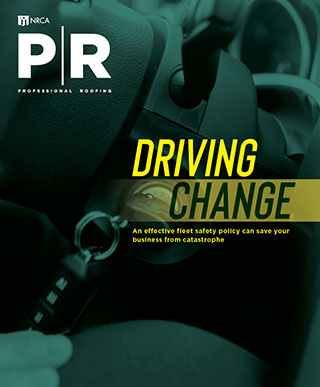In March, the Department of Labor (DOL) issued a final rule that significantly will expand certain disclosure requirements for employers under federal labor laws. You should be aware of the new reporting requirements resulting from the regulation and the potential ramifications.
The new rule
DOL's "Persuader Rule" changes the long-standing interpretation of the Labor-Management Reporting and Disclosure Act (LMRDA) of 1959. The LMRDA requires employers to disclose to DOL any arrangements with consultants where the object is to persuade employees "to exercise, not to exercise, or persuade employees as to the manner of exercising" their collective bargaining rights.
Consultants performing such work must file a similar report with DOL, and these reports must include all clients and fees for whom any labor relations advice has been provided, not merely those clients who have received persuader services.
Before the new rule was issued, there was an exemption from the disclosure requirements for any services related to "giving or agreeing to give advice." Under DOL's interpretation of the law since 1962, this exemption has been interpreted to exclude those arrangements where a law firm or other consultant provides material to employers that management is free to use, not use or use in modified form when communicating with employees. In other words, advice provided to employers that did not involve direct contact between the consultant and employees was not required to be disclosed to the government.
The new rule virtually eliminates this exemption, so the types of activities employers and consultants need to disclose to DOL are greatly expanded. Many activities that for decades have been considered routine legal services no longer will be included in the advice exemption and, therefore, will be subject to disclosure to the government. DOL says the rule's primary purpose is to ensure employees understand information provided to them regarding collective bargaining issues comes from consultants, which will enable employees to make more informed decisions when exercising their rights.
NRCA's concerns
NRCA has several concerns with the new rule, which were outlined in comments submitted to DOL when the rule first was proposed in 2011. First, the rule severely will limit the ability of employers, especially small businesses, to use the advice of qualified attorneys and other consultants to help them navigate and comply with federal laws during union-organizing campaigns. Many law firms that consult with employers with respect to union organizing refuse to engage in any activity that must be disclosed. When the new regulation takes effect, many law firms are expected to cease providing employers with advice because of the new disclosure requirements.
This will make it much more difficult for employers to find and retain counsel during union-organizing campaigns and collective bargaining. Employers that are unable or choose not to obtain legal counsel are more likely to inadvertently violate the complicated laws and precedents established under the National Labor Relations Act (NLRA). Moreover, employers that act without legal counsel may effectively give up their rights for fear of violating the NLRA. Ultimately, it will be more likely employers will not be able to communicate effectively with employees and employees will hear only one side of the story during a union-organizing campaign.
What is happening now
The final rule took effect April 25 and applies to arrangements, agreements and/or payments made in conjunction with arrangements or agreements made on or after July 1, 2016. Anyone who willfully violates the law's applicable provisions or "who knowingly fails to disclose a material fact" in a report required pursuant to the LMRDA is subject to a fine of up to $10,000 and/or up to one year's imprisonment.
The Coalition for a Democratic Workplace, of which NRCA is a member, and several other plaintiffs filed suit March 31 in federal court challenging the regulation's legality. The lawsuit charges the regulation is unconstitutionally vague and DOL ignored the clear language of the underlying statute and procedural requirements in the agency rulemaking process.
Barring legal intervention, the new reporting requirements implemented by the regulation will become fully effective in July. You should be aware of these new disclosure requirements if you are involved with collective bargaining activities.
Duane L. Musser is NRCA's vice president of government relations.



